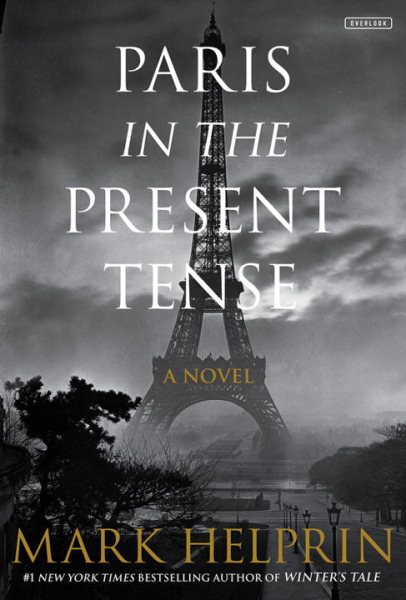By Jim Ewing. Special to the Clarion-Ledger Sunday print edition (November 5).
If you love language, as most book readers do, and thrill at the precise delineation of thought, emotion, and the paradoxes and challenges of the human condition as expressed in the saga of a single life, you’ll love Mark Helprin’s Paris in the Present Tense.
 It helps if you’re a hopeless romantic who thrives on the razor’s edge of hope and despair, not caring if ultimately successful in the target of your desires, for having experienced the compounding joys of the attempt, even if it’s dashed.
It helps if you’re a hopeless romantic who thrives on the razor’s edge of hope and despair, not caring if ultimately successful in the target of your desires, for having experienced the compounding joys of the attempt, even if it’s dashed.
A tall order, yes. But Helprin has produced a symphony of a novel that provides any sensitive, thoughtful reader great joy and sorrow, often in the same page.
The plot revolves around Jules Lacour, 74, a cellist who teaches music at the Sorbonne. A Jew, he survived the Nazis in World War II as a child, but his parents did not. That epochal event rules his life, with grief, survivor’s guilt, and an appreciation of the small miracles of daily life.
Jules falls in love easily and with virtually every attractive woman he sees. Pages are devoted to their walk, perfume, the line of neck and jaw, the easy, carefree way they comport themselves on the streets of Paris—the city of love.
But his one true love, Jacqueline, whom he met immediately after the war, has left him a widower in the beginning of Paris. The world is different, and all too much the same. Angry crowds march the streets chanting “Death to Jews,” oblivious to the city’s past.
In this strange world, he becomes party to a crime, then hatches another of his own devising in hopes of saving his young grandson from a life-threatening disease.
But, then, he meets Elodi de Challant, a beautiful, young student, and they fall in love—immediately, longingly, through the touch of a hand and the meeting of eyes.
The fear, desire, anticipation, hesitation and forthrightness between them is delicious, enthralling, ticklish and agonizing—like the initial unfolding of love itself. For a man of many summers, it offers hope, remembrance and remorse
Doomed, he believes, by the separation of their ages, she offers him a question that is searing in its simplicity: “What if you’re loved in such a way that it doesn’t matter how old you are, or if or when you die?”
Paris is a book of paradoxes, like the city, like life itself, as the title suggests, of past and present tense. “Half of humanity’s troubles arise from the inability to see that contradictory propositions can be valid simultaneously,” Jules notes. It’s a fact that makes him not afraid or bitter over the killing of his parents and the Holocaust.
“We have what was denied to them,” he explains. “We would betray them were we not happy to be alive.”
Age itself has beauty, he notes, for “you learn to see with your emotions and feel with your reason,” even if you can’t find your reading glasses.
Each page of Paris is a philosophy lesson on how to live, see, love, from someone who lives “in the present tense.” It is a world where capricious fate causes hopes to rise, which may turn to naught, creating new realities.
Enjoy this article? Let the Clarion-Ledger know by sending them an email, so we can keep providing you great locally-written content.
Jim Ewing, a former writer and editor at The Clarion-Ledger, is the author of seven books including his latest, Redefining Manhood: A Guide for Men and Those Who Love Them.
Mark Helprin will be at Lemuria on Thursday, November 16, at 5:00 p.m. to sign and read from Paris in the Present Tense.


Comments are closed.